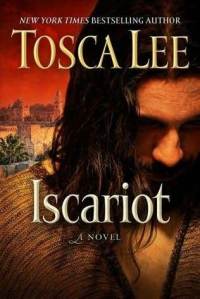 I have two compelling reasons for you to purchase The Condor Song by Darryl Nyznyk.
I have two compelling reasons for you to purchase The Condor Song by Darryl Nyznyk.
First, for every copy of the book purchased from Amazon on JULY 1st, author Darryl Nyznyk will donate $1 to The Sierra Club.
This is a great incentive, to be sure. But if that doesn’t convince you that you need to delve into this suspenseful novel, then please make note of my second reason:
It’s excellent.
Many thanks to PR By The Book for sending an advance reading copy of The Condor Song. I had not yet read the work of Darryl Nyznyk, and therefore did not have any expectations. About 5 pages in, however, I was completely hooked.
The Condor Song is a thriller that juxtaposes a smart legal premise with daunting environmental concerns. These themes are paired seamlessly, and masterfully. This was more than a story about a down-on-his-luck lawyer who gets a shot at personal and professional redemption. The Condor Song has a clear message about the environment, and how its preservation depends on the very people who are capable of destroying it.
Sean Donovan has been beaten by life. Thanks to his decision to take a moral stand on an issue at his old law firm, he lost his prestigious job, his reputation, his wife and his children. Left with a stuttering law practice 13 years later and few prospects, Donovan battles depression and constant self-doubt. The salt in his wound is the fact that the morally bankrupt lawyers at his previous firm are now the top names in the Southern California legal community.
After reading about this shell of a man, you wonder how he could possibly carry a plot. He meanders through life just waiting for the next bit of bad news. When hope presents itself, he dashes it with self-pity. When a new love interest reaches out, he pushes her away. For lack of a better word, Sean Donovan is tragic. How could it be that this man was once a leader of his legal profession?
Thanks to his mother, a potential new case suddenly presents itself, and Donovan reluctantly finds himself in the midst of a tumultuous legal battle that has thus far spanned a decade. He initially resists getting involved; how could it be worth his while if it’s just the legal issue of an old family friend? Peel a few layers back, and the case is clearly much more. This elderly family friend owns a large piece of land in an untouched area of California, and there are people who desperately wish to get their hands on it.
A Walt-Disney-like company wants to build the pinnacle of ski resorts high in California’s Sierra Nevada mountains. They’ve made every legal promise they can think of to preserve the pristine surroundings while doing so. The trouble, however, is that it cannot be done, and The Sierra Club knows this. Moreover, this ski resort will do more than disrupt the delicate balance of nature, it will block the survival of a bird that is teetering on the edge of extinction: the California Condor.
The resort people and their lawyers maintain that there are no wild-bred condors. There are only those that have been bred in captivity and released into the wild, thanks to the government’s captive breeding program. Even with the program, however, fewer than 200 of these enormous creatures exist, and the understanding was that none of them had actually bred in the wilderness. To find proof that wild condors existed would certainly jeopardize the position of the developers. Those with a vested interest in the project have absolutely no desire to see evidence that wild condors exist.
Cue the body count.
A renowned environmentalist who may suddenly be able to confirm their existence, and hikers who are able to capture the creatures on film are individuals who become… problematic. Anyone, in fact, who develops a link to the endangered condor somehow manages to become as fragile as the species itself. When there are millions of dollars at stake, is murder a crime, or simply the cost of doing business?
While Sean Donovan grapples with his personal demons, this higher calling surfaces. This is the case that will not only make or break The Sierra Club’s battle over the Sierra Nevada mountains, but it will make or break Donovan. With so much at stake, how will this gifted but gloomy lawyer rise to the challenge? Is the proposed development of the area a sound idea, or a sinister plot? Who gains? Who loses?
Beyond the gripping plot (which propels forward with the speed of a runaway train), is a novel with characters that are extremely well drawn. Not only did I find the flawed protagonist immensely likable, but the surrounding cast was also clever, and multidimensional. They all worked well together, including the menacing jackals who would stop at nothing to line their wallets. In the category of legal thrillers, The Condor Song performs beautifully. More specifically, I didn’t find the plot formulaic, which is a genuine treat in the literary world of cookie-cutter lawyer stories.
The fact that this novel revolves around an environmental theme was an enormous plus for me. I loved the focus on undisturbed wildlife, and the extraordinary challenge of keeping development at bay. Keeping the wilderness pristine is no easy task, and I found myself silently cheering for Sean Donovan and The Sierra Club throughout the novel.
No matter what your literary love is, suspense or conservation, The Condor Song will be the perfect addition to your summer reading list. This novel gets 5 stars from this Hoarder, and enthusiastic praise that proceeds from book sales on July 1st go to such a worthy cause.




